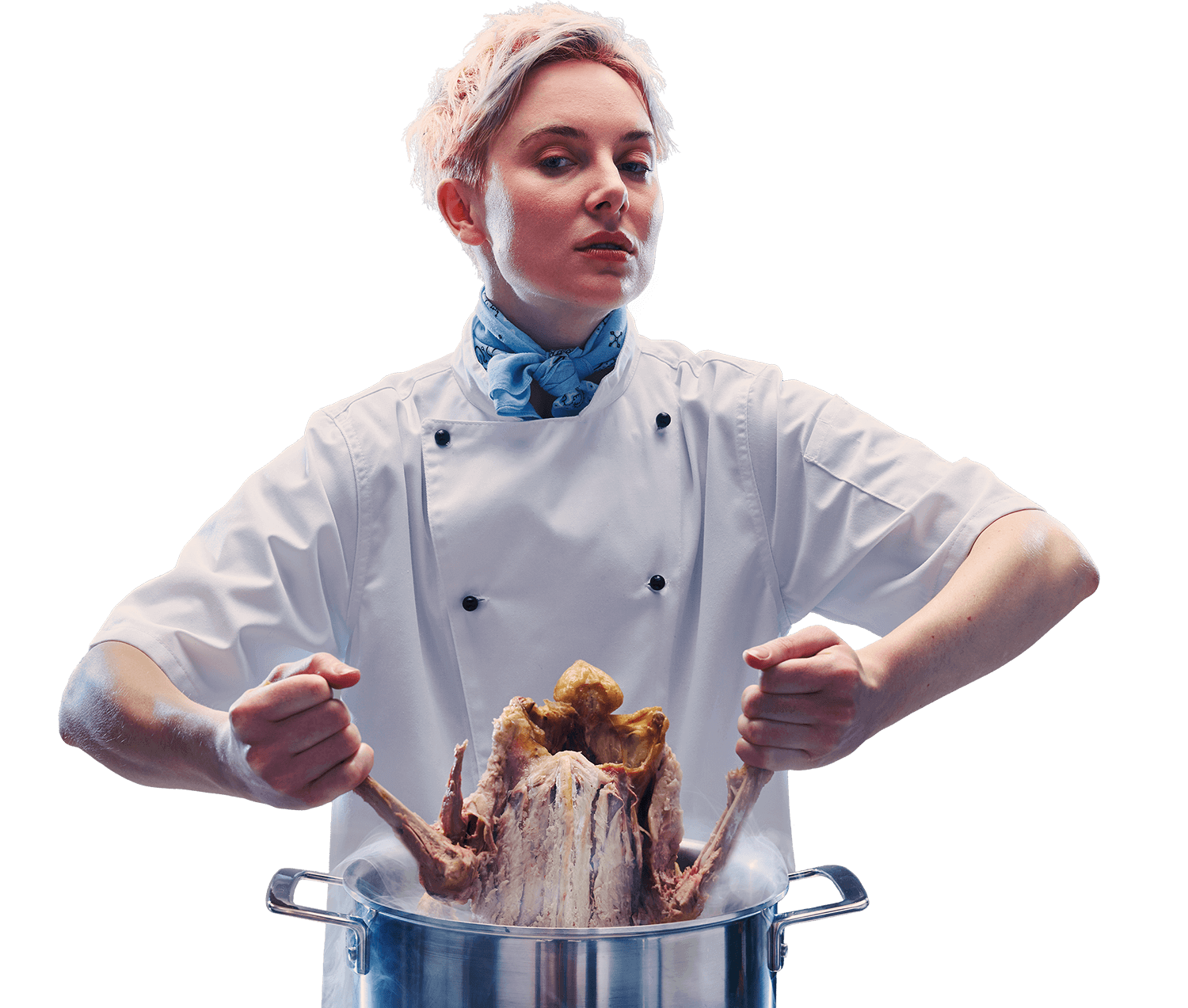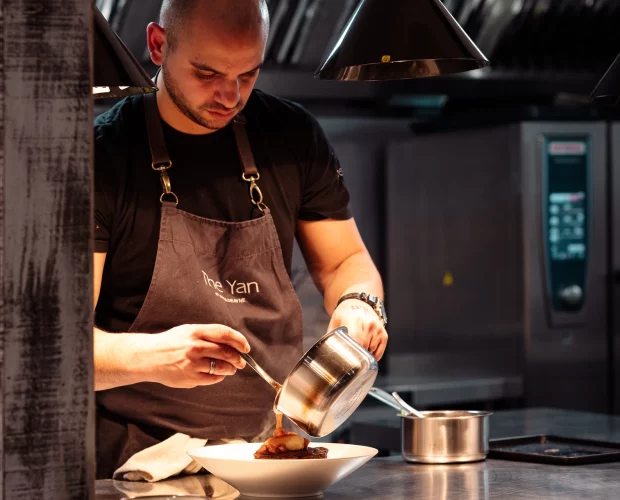The Yan – Bistro and accommodation
The Yan, award-winning accommodation and a rustic bistro, is set in a 17th-century converted sheep farm in the Lake District National Park. With a mix of serviced rooms, self-catering and glamping on-site it makes for a busy breakfast service. The Bistro is also open to non-residents and has gained a strong reputation amongst locals and visitors alike.

HOW IT STARTED
During Covid, The Yan introduced compulsory pre-ordering in their on-site bistro to help meet covid regulations and continue to operate.
Unexpected outcomes
This had a significant impact on the amount of wasted food being produced and have encouraged pre-ordering since.
An added challenge was operating in a compact space with only one person in the kitchen. This led to creative thinking around designing their menus to minimise storage requirements and prep time.
They found that by designing their menu with common ingredients, and re-purposing unwanted elements they not only saved space and time, but reduced food waste as well.
Ripple effect of actions
Whilst a lot of actions were born out of necessity and a desire to be more sustainable, they have had a positive impact in lots of other areas. Storage requirements and associated costs have been reduced, staff prep time has reduced and costs have reduced by re-purposing what would have otherwise been wasted.
TIP
- Plan and pre-order where possible.
- Use everything, pickle dry and preserve what you can.
- Plan your menus to limit ingredients needed.

“Being environmentally conscious without sacrificing our guest experience is embedded within our DNA.”
Jess Manley
Team Yan
KEY LEARNINGS
- Pre-ordering for groups of 5+, during special occasions and encouraging staying guests to pre-order prevents food waste.
- Menus are planned to share common ingredients across dishes minimising waste.
- Room only rates with an a la carte breakfast option encourages more mindful ordering.
- Fresh ingredients are processed as soon as they come into the kitchens. These are, cooked, portioned and frozen in batches. The rest are pickled, dried and preserved.
- Unused items from prep are de-hydrated and served as drinks garnishes, infused to create syrups or even dried for teas.
- Investing in heat-based composting allows for faster and more effective processing of organic waste (peelings etc).
IMPROVEMENTS MADE
- The pre-ordering of dishes has significantly reduced wasted food. Post-covid, this was relaxed to only be compulsory for groups of 5+ but is still actively encouraged through communications.
- Roughly 10% of staying guests pre-order as they understand it is part of a wider sustainable ethos.
- A recent study, alongside ECO-I North West and Cumbria University, found that if all guests to The Yan were to pre-order their meal, it would provide an annual carbon saving of 1.174 tons and reduce kitchen waste by 50%.
- They successfully received 100% pre-orders during Easter, allowing them to plan accordingly and achieve zero food waste, whilst increasing covers by 31%. ‘This further proves how pre-ordering not only reduces waste but can help a hospitality business increase revenue.
